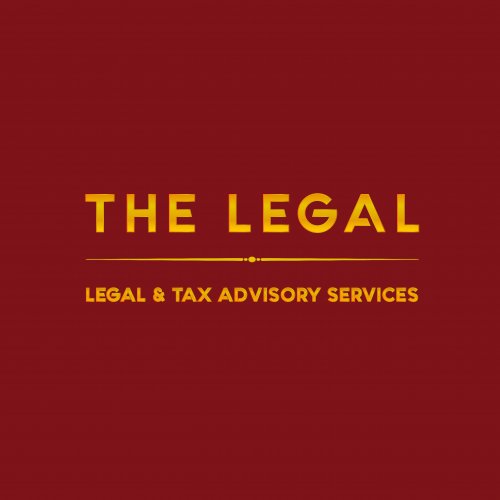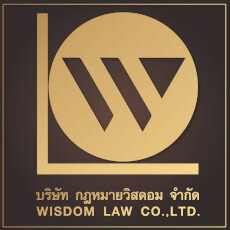Best Space Law Lawyers in Bangkok
Share your needs with us, get contacted by law firms.
Free. Takes 2 min.
List of the best lawyers in Bangkok, Thailand
Legal guides written by Smart Legal Solutions:
- Main Legal Measures to Protect Foreign Investment in Thailand
- The importance of the geographical indications for the Thai economy
Legal guides written by Mahanakorn Partners Group Co., Ltd:
- Thailand Strengthens Anti-Money Laundering Laws with New Amendments
- Recent Updates to Thailand’s Long-Term Resident (LTR) Visa and SMART Visa Programs
- Managing Risks in Public-Private Partnership Projects
About Space Law in Bangkok, Thailand
Space Law in Thailand encompasses a range of legal issues that pertain to activities in outer space. As the space industry grows, both globally and regionally, Bangkok is emerging as a hub for the discussion and development of Space Law in Southeast Asia. This legal field involves national regulations, international treaties, satellite operations, space commercialization, and the impact of space activities on legal infrastructures. Due to its strategic location and progressive stance, Thailand is positioning itself to play an important role in regional space exploration and exploitation initiatives.
Why You May Need a Lawyer
Space Law is a complex and rapidly evolving field. There are several scenarios in which an individual or a business entity may require the expertise of a space law attorney in Bangkok:
- Negotiating and drafting contracts related to satellite procurement and launches.
- Ensuring compliance with both Thai national laws and international space regulations.
- Addressing liabilities and insurance issues concerning space operations and products.
- Securing permits and licenses for commercial space ventures.
- Resolving disputes that arise from space activities conducted by Thai or foreign entities.
Local Laws Overview
Thailand’s space-related legal framework is growing, with a strong emphasis on aligning with international treaties such as the Outer Space Treaty 1967 and the Liability Convention 1972. Key local laws and regulations include:
- National Space Policy: Establishes guidelines for the peaceful use of outer space and supports national security and economic development.
- Satellite Communications Regulation: Covers licensing and management of satellite frequencies and orbital slots.
- Environment and Liability Legislation: Relevant for assessing and managing potential environmental impacts of space operations.
Frequently Asked Questions
What is the outer space treaty and is Thailand a signatory?
The Outer Space Treaty establishes a framework for international space law, focused on peaceful exploration and use of outer space. Thailand is a signatory of this treaty.
Are there any incentives for investing in space projects in Thailand?
Yes, Thailand offers various incentives and support for research and development in space technologies and related industries, often coordinated through agencies such as the Geo-Informatics and Space Technology Development Agency (GISTDA).
How is liability determined for damages caused by space objects?
Liability is generally determined based on international treaties like the Liability Convention, which Thailand has ratified, holding the launching state responsible for space object damages, both on Earth and in space.
Can foreign companies launch satellites from Thailand?
Yes, foreign companies can launch satellites from Thailand, subject to compliance with Thai regulations and obtaining necessary licenses.
What legal protections are there for intellectual property developed in space?
Thailand adheres to international IP laws and treaties, ensuring protection of intellectual property developed through space activities similar to terrestrial IP regulations.
Is there a regulatory body governing space activities in Thailand?
Yes, the key regulatory body is GISTDA, which oversees and facilitates space activities, policy development, and international cooperation in Thailand.
How does Thai law handle space debris issues?
While specific laws on space debris are still under development, Thailand aligns with international guidelines on space debris mitigation and sustainable use of outer space.
What permits are required for launching a satellite from Thailand?
Launching a satellite requires multiple permits, including frequency allocation from the National Broadcasting and Telecommunications Commission (NBTC) and operational licenses from GISTDA.
How is dispute resolution in space law handled?
Disputes can be resolved through negotiation, arbitration, or litigation, often guided by international conventions and local legal systems.
Are there specific environmental regulations for space activities in Thailand?
Yes, space activities must comply with national environmental regulations, assessing the potential impact on the environment and incorporating sustainable practices.
Additional Resources
For those seeking further information on Space Law in Thailand, the following resources may be helpful:
- Geo-Informatics and Space Technology Development Agency (GISTDA): The national agency responsible for promoting and regulating space technology development.
- Thailand Space Law and Policy Center: A hub for research and expertise on national space laws and policies.
- International Institute of Space Law (IISL): Provides global perspectives on space law development and practice.
Next Steps
If you need legal assistance in the realm of Space Law in Bangkok, follow these steps:
- Identify your specific legal needs related to space activities.
- Research and connect with legal firms or practitioners specialized in Space Law in Bangkok.
- Prepare all necessary documents and information related to your case or inquiry.
- Schedule consultations to assess legal strategies and potential outcomes.
- Consider engaging with governmental or industry bodies for additional support and information.
Lawzana helps you find the best lawyers and law firms in Bangkok through a curated and pre-screened list of qualified legal professionals. Our platform offers rankings and detailed profiles of attorneys and law firms, allowing you to compare based on practice areas, including Space Law, experience, and client feedback.
Each profile includes a description of the firm's areas of practice, client reviews, team members and partners, year of establishment, spoken languages, office locations, contact information, social media presence, and any published articles or resources. Most firms on our platform speak English and are experienced in both local and international legal matters.
Get a quote from top-rated law firms in Bangkok, Thailand — quickly, securely, and without unnecessary hassle.
Disclaimer:
The information provided on this page is for general informational purposes only and does not constitute legal advice. While we strive to ensure the accuracy and relevance of the content, legal information may change over time, and interpretations of the law can vary. You should always consult with a qualified legal professional for advice specific to your situation.
We disclaim all liability for actions taken or not taken based on the content of this page. If you believe any information is incorrect or outdated, please contact us, and we will review and update it where appropriate.

















